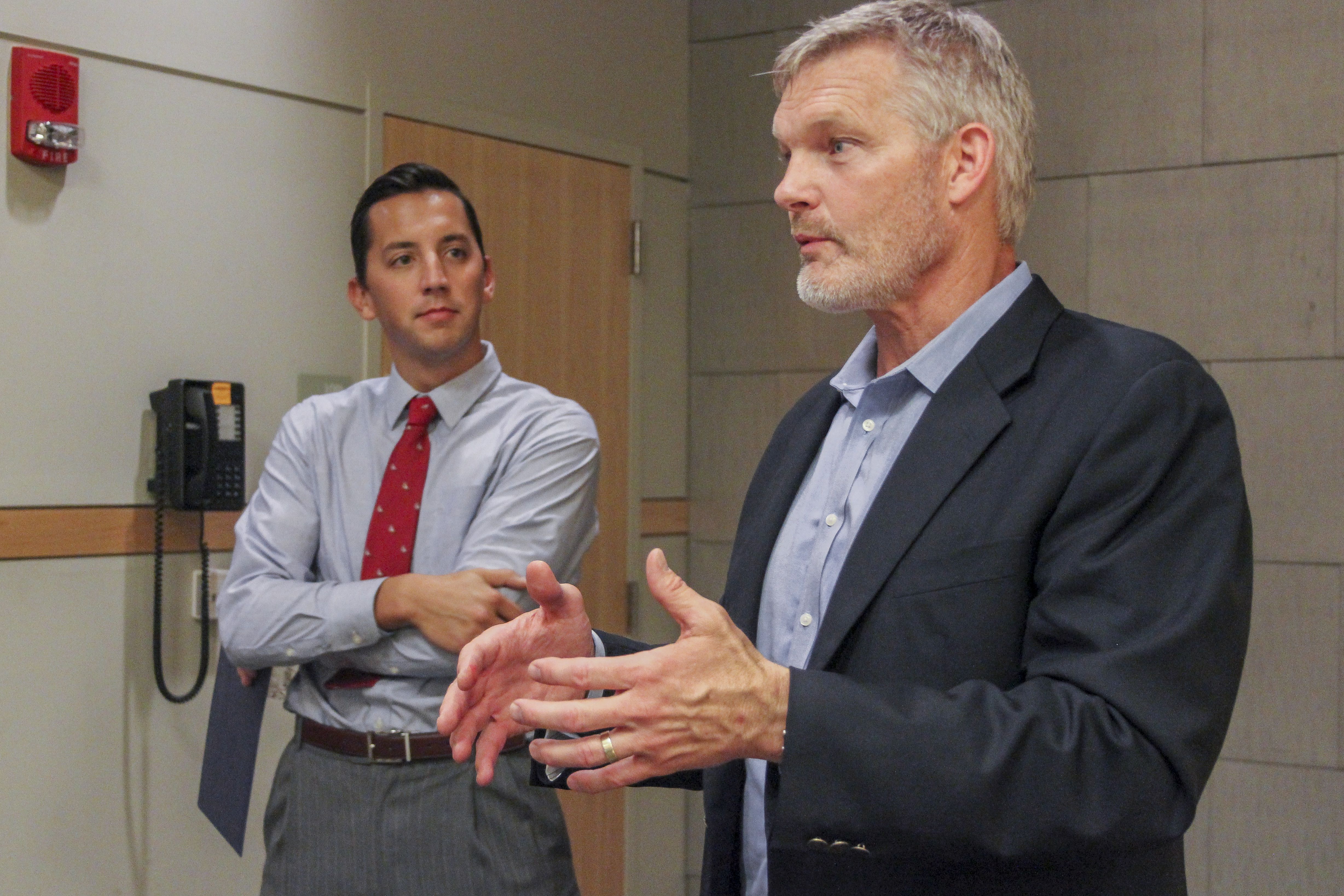
Systemic understanding of a problem is the key to solving it, and there are a number of other hidden problems surrounding water scarcity that people do not even think about, a member of the Woodrow Wilson Fellows and former Navy Commander said last Tuesday.
“Water scarcity is a food problem,” Robert Gusentine said. “In 2050, you’ll have enough water to drink but know food.”
On Tuesday, Oct. 7, Robert “Gus” Gusentine from Global Sounding Inc. gave a talk called, “Water: Understanding the Challenge.” This talk was part of his week- long visit at Cabrini with the Woodrow Wilson Fellows.
Gusentine began his talk with an anecdote about falling down a hill during his time in the Navy.
He then invited everyone in attendance to, “take a tumble down a hill about water,” encouraging everyone to jump right in.
The first section of his talk was about understanding. Drawing heavily on his experience in the Navy, he explained that one of the reasons they would fail at doing their jobs in foreign countries was because they did not understand what they were getting into.
He spoke about group of Iraqi woman who destroyed a well built in their town because the two-kilometer walk to their normal well was their personal time.
He talked about a Haitian village that did not want the main road to their town repaired because the local motorcycle gang would be able to reach them.
“We just didn’t understand,” Gusentine said.
He then began to talk about our connectedness.
“Are we not connected to everything else?” Gusentine questioned. “Systemic understanding is key to under- standing our global fresh water supply.”
He then went into the concept of upstream and downstream as a way to show our connectedness. He talked about the Nile River and how developing nations up stream are damming and giving less water to the countries further downstream. He then brought it closer to home with a Supreme Court case where Florida is suing Georgia for using too much water from the Chattahoochee River.
His point is that we are all connected and therefore must work together to solve this water problem, which brought him into his challenge for everyone.
“It won’t be technology that saves us,” Gusentine said. “We have to change the way we live.”
He challenged all in attendance to think of water, and the many problems surrounding it, complexly. Everything takes water even things that people would not expect, everything from bottles to tortillas.
The response to his talk was very positive. Cathy King, a visitor to Cabrini who attended the talk, said, “I loved it because he was making you think about the problem globally and not just locally… it just gave me a lot of things to think about in terms of where we’re going as a world.”
The final point he made was a challenge for students to be good stewards. “You saving water at home will not change this problem. What that will do, if you practice good stewardship, is it’s going to change you” Gustine said. “That behavior of stewardship, that you will carry forward and teach to your friends…and families is going to make a difference.”


